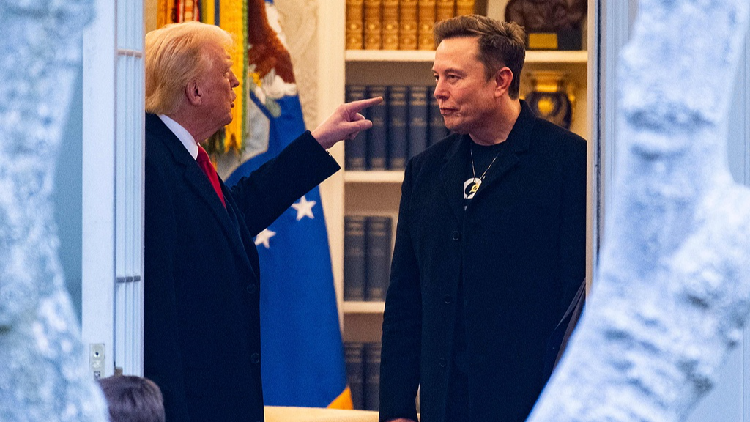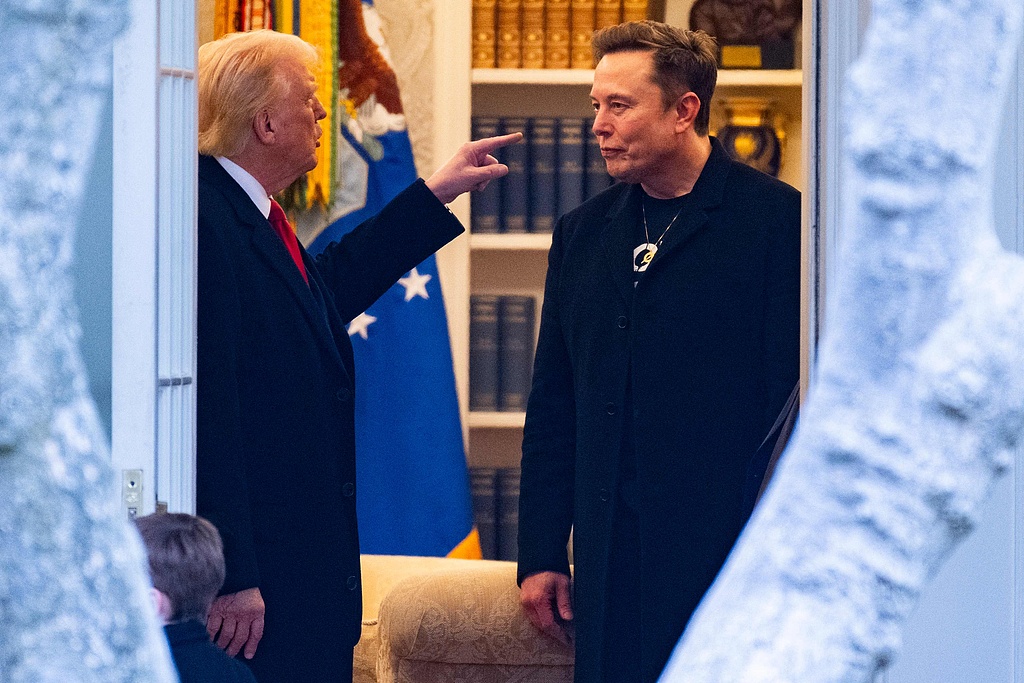Elon Musk Slams Trump's Tax-Cut and Spending Bill as 'Disgusting Abomination'
Elon Musk slams Trump's tax bill as a "disgusting abomination" that will worsen the federal deficit.


Billionaire entrepreneur Elon Musk sharply criticized President Donald Trump’s sweeping tax and spending bill on Tuesday, describing it as a “disgusting abomination” that would significantly inflate the federal deficit. Musk, who leads both Tesla and SpaceX, made his comments public through postings on his social media platform X, igniting debate among lawmakers already divided over the measure.
The legislation, which would extend the 2017 tax cuts—one of Trump’s most prominent legislative achievements—while simultaneously increasing expenditures on the military and border security, has drawn fire from multiple corners. Several fiscally conservative Republicans in the Senate quickly voiced agreement with Musk’s concerns, raising the possibility of additional hurdles as the bill moves toward a vote in the chamber.
“I’m sorry, but I just can’t stand it anymore,” Musk posted. “This massive, outrageous, pork-filled Congressional spending bill is a disgusting abomination.” He went further, admonishing those responsible: “Shame on those who voted for it: you know you did wrong. You know it.”
Concerns about the bill’s fiscal impact are particularly acute in Washington after the Congressional Budget Office concluded the proposal would add $3.8 trillion to the national debt, which already stands at $36.2 trillion. The House of Representatives narrowly approved the measure last month, and the Senate, also under Republican control, is aiming to finalize its own version—dubbed the “One Big Beautiful Bill Act”—in the coming weeks.
The Senate Finance Committee, which oversees tax policy, is expected to meet with President Trump at the White House to discuss the possible permanency of business-oriented tax breaks included in the bill. Policy analysts caution that such moves could substantially escalate the overall cost of the legislation.
The White House, however, brushed aside Musk's condemnation. “Look, the president already knows where Elon Musk stood on this bill,” said spokeswoman Karoline Leavitt at a briefing. “It doesn’t change the president’s opinion. This is one big, beautiful bill, and he’s sticking to it.”
Yet even before Musk’s remarks gained traction, Senate Republicans remained split. Deficit hawks continue to demand reductions beyond the $1.6 trillion in spending cuts over the next decade included in the House version, while a separate group of Republican senators from rural states are intent on protecting Medicaid and other key programs for low-income Americans.
Senator Mike Lee, a leading fiscal conservative, called for his party to use the Trump bill as well as future spending measures to make meaningful progress on deficit reduction. With a 53-47 seat majority in the Senate, Republicans can afford to lose support from only three members if they hope to pass the bill—potentially relying on a tie-breaking vote from Vice President JD Vance to meet their self-imposed July 4 deadline.
Senator Ron Johnson, another fiscal hardliner, expressed skepticism that lawmakers would be able to resolve their differences and achieve substantial spending cuts before the looming deadline. He and Lee are joined by at least two other senators demanding revisions to cap the growth of the nation’s debt and deficit.
Meanwhile, a similarly sized group of Republican lawmakers have drawn a line regarding further spending cuts, voicing strong support for programs aiding Medicaid recipients and investments in green energy. “I certainly have an interest in making sure people with disabilities are not harmed. But also, there’s the broad issue of how does it affect hospital reimbursements,” Senator Jerry Moran explained to reporters.
Faced with these fiscal and political pressures, some Senate Republicans are considering alternatives to find savings elsewhere. This could include postponing action on Trump’s headline proposals to provide tax breaks for tips, overtime pay, and Social Security benefits, leaving those initiatives for separate legislation later in the year.




